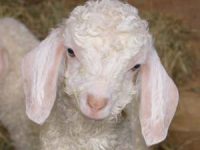British Veterinary Association and Goat Veterinary Society consider the use of appropriate anaesthesia...
Not so fast: From shrews to elephants, animal reflexes surprisingly slow
While speediness is a priority for any animal trying to escape a predator or avoid a fall, a new study by Simon Fraser University researchers suggests that even the fastest reflexes among all animals are remarkably slow.
"Animals as small as shrews and as large as elephants are built out of the same building blocks of...
Ancient African herders had lasting ecological impact on grazed lands
Ancient animal herders added to the ecological richness and diversity of the African savanna thousands of years ago -- an effect that persists to the present day, a new study finds. The herders' practice of penning their cattle, goats and sheep at night created nutrient-rich grassy glades, called hotspots, that still attract wildlife and have...
An ocean apart, carnivorous pitcher plants create similar communities
After a six-hour ride over increasingly treacherous roads, it took a full day's hike up almost 3,000 feet for Leonora Bittleston to reach Nepenthes Camp in the Maliau Basin, an elevated conservation area in Malaysian Borneo with a rich, isolated rainforest ecosystem.
After waiting three years for collecting permits, Bittleston, then a graduate student at Harvard...
A better way to count boreal birds
Knowing approximately how many individuals of a certain species are out there is important for bird conservation efforts, but raw data from bird surveys tends to underestimate bird abundance. The researchers behind a new paper from The Condor: Ornithological Applications tested a new statistical method to adjust for this and confirmed several mathematical tweaks that...
Color vision makes birds of prey successful hunters
In many cases it is the colour of the prey that helps predatory birds to detect, pursue and capture them. In a new study, biologists at Lund University in Sweden show that the Harris's hawk has the best colour vision of all animals investigated to date -- and in certain situations, even better than humans....


